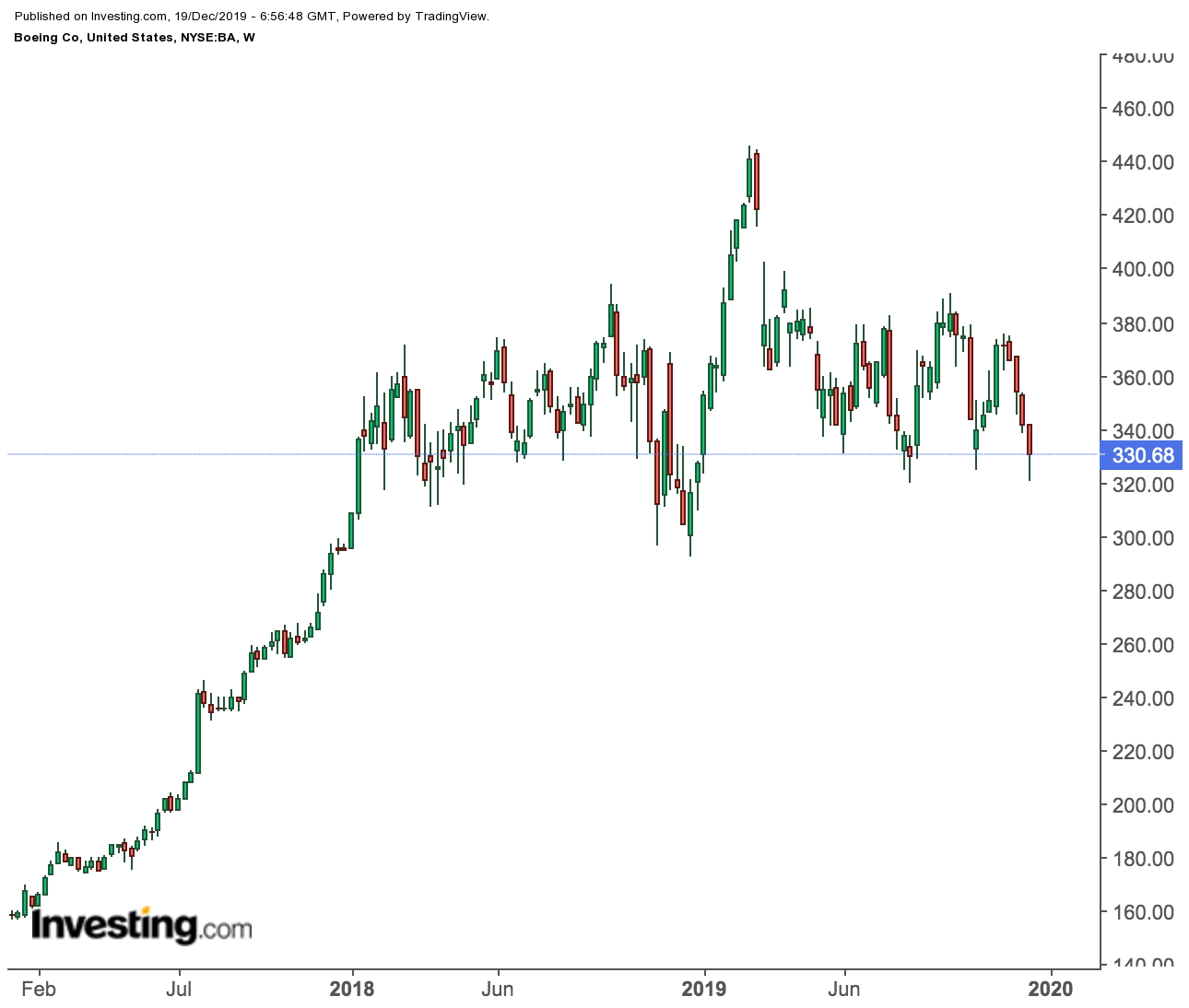Nvidia pushes back on AI bubble narrative as Blackwell drives Q3 beat, shares jump
It looks like an ugly start to the new year for the world’s largest airplane manufacturer, Boeing (NYSE:BA).
After months of preparations, damage control, and intense regulatory probes, the company’s flagship 737 MAX plane is still grounded because of two fatal crashes this year. And there is no certainty when that global ban, imposed after the March crash, will be lifted.
Boeing’s stock dropped more than 4% on Monday after The Wall Street Journal reported that the plane maker would suspend production of the MAX at its 12,000-employee factory in Renton, Wash., until January. The development, later confirmed by Boeing, has added to the flurry of negative news since October about the company’s handling of the 737 MAX's faulty system, keeping its stock under pressure.
After plunging about 7% in the past five trading sessions, Boeing shares have lost about a third of their value since March when the 737 MAX faced a global grounding after the Ethiopian Airlines crash, which followed the Lion Air crash in October 2018. The shares recouped some of their losses in yesterday's session, rising 1.1% to close at $330.68.
The production halt of 737 MAX came after the regulator’s unusual public statement that admonished the Boeing management for using pressure tactics to get the ban lifted. The U.S. Federal Aviation Authority (FAA) said in a message to the U.S. Congress that it had used a recent meeting to exhort the company to focus on the “quality and timeliness of data submittals for FAA review.”
In October, we noted that the worst for Boeing is yet to come because the FAA would not want to be seen as rushing approval of the MAX as it tries to win back the trust of passengers and foreign regulators. The latest setback further confirms that the Boeing journey back to normality will be both longer and more troublesome than earlier envisaged.
A Huge Cash Drain
With MAX jets piling up outside factories in the State of Washington and the regulator's scrutiny continuing, Boeing will have to suffer more financially, making it tougher for analysts to call a bottom in its share price.
Before announcing the January production halt, Boeing had placed more than 380 newly built planes in storage, according to a tally by 737 production blogger Chris Edwards. In its second-quarter earnings report, Boeing took a $5 billion charge to compensate airline customers for grounding jets.
That cost will certainly rise if the regulator doesn’t allow the MAX to fly again early next year. In addition, Boeing will have to pay hundreds of millions more to the families of the victims. Sheila Kahyaoglu, analyst at Jefferies, calculates an additional 6% damage to earnings per share in 2020.
As long as the plane remains grounded, it will be tough to figure out the extent of the damage to the company’s reputation and its financial outlook. But the stakes are too high for both Boeing and for the U.S. economy.
The 737, which first entered service in the late 1960s, is the aviation industry’s best-selling model and Boeing’s top earner. The re-engineered MAX version was so successful that it attracted more than 5,000 orders worth more than $600 billion, including planes that have already been delivered.
But the commercial return of Boeing’s best-selling plane has been blocked repeatedly and now isn’t likely before early 2020. The delays have cost the plane-maker at least $8.4 billion so far, according to Bloomberg.
Bottom Line
Going forward, we don't think Boeing can reach full operational normalcy in the near-term — and the main impediment in this process is regaining public trust. Boeing is certainly capable of solving the technical issues required to make the MAX a viable revenue generator again, but that process is also closely tied with winning back public confidence.
The FAA’s rare public admonishment this week signals that this process will be more complicated and may cost Boeing's Chief Executive Officer Dennis Muilenburg his job. We don’t think the time is yet right for investors waiting to grab this largest industrial stock. The risks are more to the downside.
